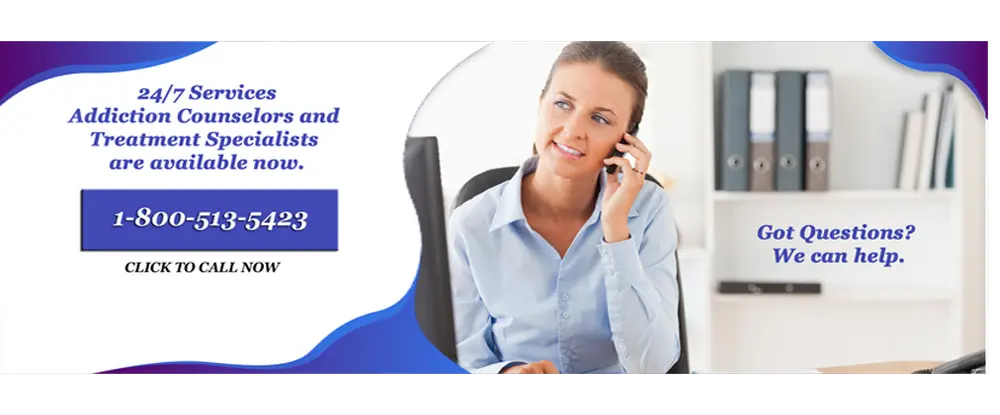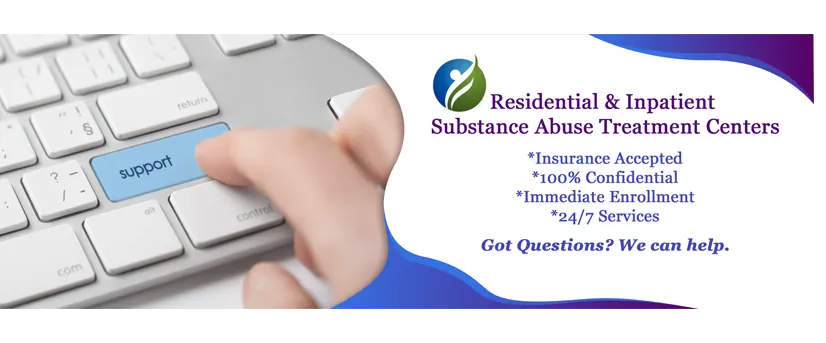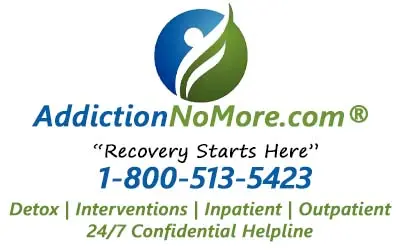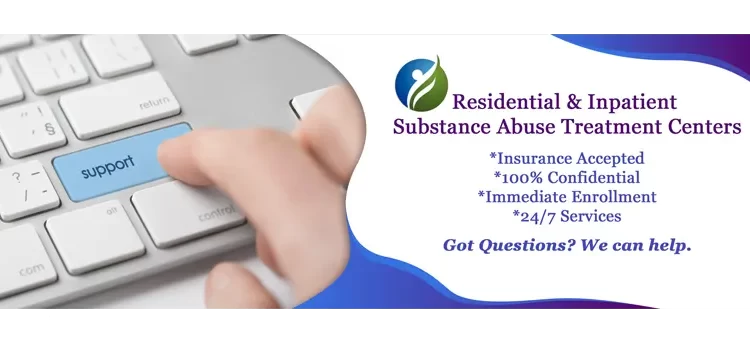Residential Drug Rehab Centers in Kansas City, Kansas
The first step in looking for Residential Drug Rehab Centers in Kansas City, Kansas, is to decide if you should enter into a short-term or long-term residential rehabilitation center. Private long-term residential programs are the most effective form of treatment for addiction. Outpatient drug rehabilitation programs can offer a good alternative for light drug and alcohol users. Residential drug rehab centers are typically outside of the hospital system and offer longer stays. Residential rehabs are live-in treatment homes. This type of drug rehab center can often also address some of the underlying psychological or behavioral problems associated with drug and alcohol addictions. People with mental or medical concerns, as well as substance use disorders, are the most likely to use residential treatment. Inpatient residential drug rehab centers can open the door to long-lasting recovery.Please contact us by phone for immediate assistance. This is a necessary step in beginning the recovery process for yourself or a loved one. Our addiction treatment specialists and staff have over 25 years of experience in helping people find effective and affordable treatment for all addictions. What you tell us is completely confidential. We are HIPAA compliant. We are here to answer your questions and to get you (or a loved one) into treatment today. For immediate intake, call us now.
1-800-513-5423

Rehabilitation Centers in Kansas City, Kansas
Many of the residential drug rehab centers in Kansas City offer innovative therapies in an inpatient setting. Treatment programs that offer evidence-based therapies also offer detox services in their centers with around-the-clock medical staff. Finding the right drug rehab center in Kansas City, Kansas, should include discovering what type of recovery program would best suit your needs/beliefs/goals during treatment. When you ask an addiction specialist about which type of treatment is better for handling substance abuse issues, more often than not, you will find they recommend residential long-term treatment programs over short-term rehab or even outpatient therapy programs. Long-term rehabilitation programs are the most effective type of treatment to give the individual a better chance at long-lasting recovery.
Here are a few reasons why you should choose a long-term inpatient treatment program: Long-term treatment programs last from 45 days up to a year in treatment; with that being said, the most common long-term programs are from 60-90 days long. This allows the individual to be able to get the care they need to be truly drug-free. The individual gets out of the environment that may have led to the substance abuse problem in the beginning. This allows the individual to focus on their recovery. With a longer time in treatment, the staff and counselors can spend more time with each client to ensure that the individual has all the necessary tools and the ability to apply them in the real world.
Most long-term treatment programs offer aftercare programs and continued care therapy to help clients transition from treatment to home life. It is sometimes beneficial for the client to go to treatment further away from home. Getting away from temptations and friends who may still be using is often better for many people. Clients who go to rehab in another state also have a harder time leaving treatment early as well. Depending on the situation, our counselors may suggest looking for substance abuse programs that are a plane flight away. Clients who are out of the area will be given help finding aftercare treatment programs in their area.
There are over 50 different types of rehab programs available in the state of Kansas alone, including over 10 long-term rehab centers, about 10 detox centers, and a little under 50 treatment facilities offering outpatient services. You have a few options for treatment in the city of Kansas City, including at least 4 residential drug rehabs that take private health insurance such as Aetna, BCBS, or United Healthcare, 1 stand-alone detox center, 5 outpatient rehabs, 3 addiction programs that take Medicaid, and at least 1 inpatient drug rehab.
Intervention Services in Kansas City
When a person feels that their addiction is not of anyone else’s concern, it may be time to find an interventionist to help manage and convince the individual to seek treatment. Getting a professional interventionist to help convince someone to seek help for their addiction problems will help the family convince the addict to get the help needed. You have one chance to do an intervention, and it is always better to get help during this trying time. We can help you locate an interventionist close to you and start the process, so pick up the phone before it is too late.How Much Does Rehab Cost?
The costs of treatment can vary from center to center depending on several factors. Length of time in treatment, type of treatment, and whether it is a private or state-funded rehab center program can determine out-of-pocket expenses. The most common way to pay for treatment is to use private health insurance or cash self-payments. If you do not have private health insurance, some programs take Medicaid in the state, and some are free for those who qualify for assistance. If you need help locating residential rehabilitation programs for substance abuse or alcohol abuse in Wyandotte County, feel free to give us a call. We can help you locate a drug rehab center that will be able to work with your insurance.1-800-513-5423

Types of Locally Available Treatment Programs in Kansas City, Kansas
1-800-513-5423
Christian/Faith-Based Programs
Secular (non-religious) programs
IOP Outpatient therapy
Women Only Treatment Centers
30-day 60-day, and 90-day inpatient
LGBTQ drug rehab centers
Holistic treatment programs
Mental health treatment centers
Detox Centers
Intervention
How rehab works
Get Help Now Before it is Too Late
Inpatient and Residential Drug Rehabs Near Me
Kansas City, Kansas
Below we have listed a few of the different drug rehab centers in Kansas City, KS., including inpatient, outpatient, detox, and other drug rehab services. We have also listed some of the recovery meetings in Wyandotte County to help with the aftercare and recovery process. If you need further assistance or would like to talk to a rehab specialist about the choices near you, give us a call, and we will help you find the best residential drug rehab today.
1-800-513-5423
Kansas City Metro Methadone Program offers outpatient detox and treatment programs for substance abuse through their methadone program. Therapy is included, including relapse prevention. Payments for treatment accepted include Medicaid, military insurance, private health insurance, and cash self-payments.
Kansas City Metro Methadone Prog
3901 Rainbow Boulevard Mail Stop 4015
Kansas City, Kansas, 66160
Mattie Rhodes Center Provides outpatient treatment for substance abuse through its therapy center in Kansas City. Treatment for substance abuse includes counseling and is available in both the Kansas and Missouri side. This program for addiction uses a holistic approach along with art therapy and conventional counseling services.
Mattie Rhodes Center
148 North Topping Avenue
Kansas City, MO – 64123
First Step Rehabilitation Services offers residential drug rehab center programs, inpatient drug rehab center programs, outpatient treatment plans, long-term residential treatment programs, detoxification programs, and telemedicine drug rehab counseling. This is a 12-step drug rehab center program that is close to Kansas City, Kansas which accepts Medicaid, private health insurance, and cash or self-payments.
First Step Rehabilitation Services
3015 West 31st Street
Lawrence, Kansas, 66047
Kansas City VA Medical Center offers hospital inpatient substance abuse treatment programs, residential treatment, outpatient day treatment plans, detox, and long-term residential drug rehab center programs in Kansas City, Kansas. Specialized treatment plans for PTSD and dual diagnosis patients. Payments accepted can include private health insurance, cash or self-payments, and Tricare.
Kansas City VA Medical Center
4801 Linwood Boulevard
Kansas City, Missouri, 64128
Recovery resources and sober recovery meetings near Kansas City, Kansas
Footprints in Lebanon, MO. offers group AA meetings 5 days a week. Mondays from noon to 1 p.m. is a closed meditation group, Wednesdays from noon to 1 p.m. open Big Book study, Thursdays from noon to 1 p.m. open discussion, and Fridays 6-7 p.m. open discussion.
Footprints
Catholic Church
451 Pearl St
Lebanon, MO 65536
Jaywalkers Group meets a few days a week for group therapy AA meetings in Overland Park, Kansas.
Monday- at noon-1 p.m. for a closed discussion
Wednesday- noon-1 pm Closed discussion and reflection
Thursday- noon-1 pm Closed discussion
Friday- noon-1 p.m. for an open speaker/discussion group
Jaywalkers Group
6100 W 127th St
Overland Park, KS 66209
Room 20. ZOOM MEETINGS ONLY ZOOM ID: 500 854 238 PASSCODE: jaywalk#85
Bill’s Friends meets 7 days a week for different style meetings please make note of which groups are open or closed to the public.
Monday 7-8 am closed discussion, 6-7 pm closed discussion
Tuesday 7-8 am closed discussion, 6-7 pm closed discussion
wedensday7-8 am closed discussion, 6-7 pm closed steps and traditions meeting
Thursday, 7-8 am, closed Big Book study group 6-7 pm closed step meeting
Friday 7-8 pm closed discussion. 6-7 pm 12 steps and 12 steps traditions meeting
Saturday 8-9 am closed big book, 6-7 pm open discussion, 10-11 pm open candlelight discussion group and reflections.
Sunday- 8-9 am closed discussion, 6-7 pm open speaker group.
Bills Friends
4801 Rainbow Blvd
Westwood, KS 66205
Parking and entrance are in the back
Kansas had a 54% surge in overdose fatalities in the first 6 months of 2021
The preliminary reports indicate that Kansas suffered a 54% increase in overdoses during the first 6 months of 2021. This is compared to 2020 for the same period. Fatal drug overdoses have been on the rise throughout the whole country and Kansas is no different. Almost half the overdose deaths for this period are attributed to fentanyl, a synthetic opioid frequently combined with heroin, cocaine, methamphetamines, and MDMA. 140 of the deaths reported can be attributed to methamphetamines and 40 overdose deaths were linked to other drugs such as cocaine, benzodiazepines, or opioids.
1-800-513-5423
Erik Epp – Content AuthorSources
SAMHSA
Kansas Dept of Health




